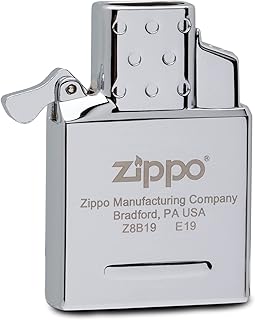The Science Behind Zippo Lighters: A Simple Yet Ingenious Design
The Zippo lighter is a classic for a reason: its reliability and simple design. Here's the science behind how it works:
1. The Flint and Wheel:
* Flint: Made of a hard, brittle material like ferrocerium, the flint contains metal alloys that readily spark when struck.
* Wheel: The wheel is made of steel and features a serrated edge. When you flick the lighter, the wheel spins against the flint, creating friction.
* Spark: This friction generates heat, causing tiny particles of the flint to break off and ignite, producing a shower of sparks.
2. The Fuel and Wick:
* Fuel: Zippo lighters use naphtha, a highly flammable liquid hydrocarbon, as fuel.
* Wick: The wick is made of cotton or another absorbent material. It's dipped in naphtha, allowing the fuel to travel up the wick by capillary action.
3. The Flame:
* Spark Ignition: The sparks produced by the flint and wheel ignite the fuel-soaked wick, creating a flame.
* Air Intake: The lighter's design allows air to enter through vents, providing oxygen for the flame to sustain itself.
* Windproof Design: The distinctive Zippo case shields the flame from wind, allowing it to burn reliably even in challenging conditions.
4. The Inner Mechanism:
* Spring: A strong spring housed within the lighter retracts the flint wheel after it has struck the flint.
* Mechanism: The lighter's inner mechanism is precisely engineered to control the flint and wheel interaction, ensuring consistent sparking.
5. The Iconic Click:
* The sound: The distinctive "click" you hear when you close a Zippo lighter is caused by the spring-loaded lid snapping shut. This sound is a hallmark of the Zippo brand.
In Summary:
The Zippo lighter's ingenuity lies in its simplicity. It combines basic physical principles like friction, heat, and combustion in a user-friendly, robust, and reliable design. The combination of flint and wheel sparking, naphtha fuel, wick absorption, and a windproof design creates a highly effective and enduring lighter.


